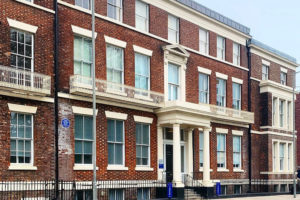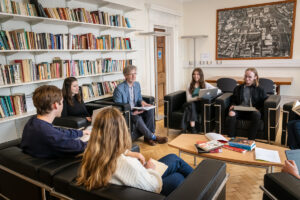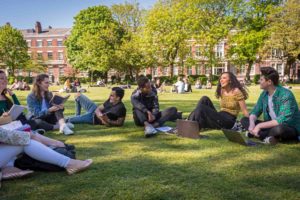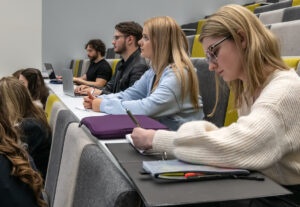How you'll learn
All MRes English students will complete a taught research skills module in Semester one, with one on-campus session per week, shared with the relevant MA cohort.
Class sizes for all master’s programmes in the Department of English tend to be small, and a typical class will include no more than 10 students. The other 3 modules (ENGL703 Research Resources, ENGL704 Feasibility Study and ENGL705 Dissertation) involve a total of at least 30 hours of one-to-one meetings with the supervisor(s), who will guide students through their self-directed study and independent research.
How you're assessed
The assessments for the research skills module depend on the discipline (ENGL699 for English Language or ENGL700 for English Literature) but may include written work (such as a review article and an updated research proposal) as well as alternative forms of assessment (e.g., a radio essay on an aspect of your research).
Two further modules (ENGL703 Research Resources and ENGL704 Feasibility Study) are assessed via an annotated bibliography and a sample chapter, respectively, allowing students to focus on work that is directly relevant to their dissertation (ENGL705, 30,000-35,000 words).
Liverpool Hallmarks
We have a distinctive approach to education, the Liverpool Curriculum Framework, which focuses on research-connected teaching, active learning, and authentic assessment to ensure our students graduate as digitally fluent and confident global citizens.
The Liverpool Curriculum framework sets out our distinctive approach to education. Our teaching staff support our students to develop academic knowledge, skills, and understanding alongside our graduate attributes:
- Digital fluency
- Confidence
- Global citizenship
Our curriculum is characterised by the three Liverpool Hallmarks:
- Research-connected teaching
- Active learning
- Authentic assessment
All this is underpinned by our core value of inclusivity and commitment to providing a curriculum that is accessible to all students.










